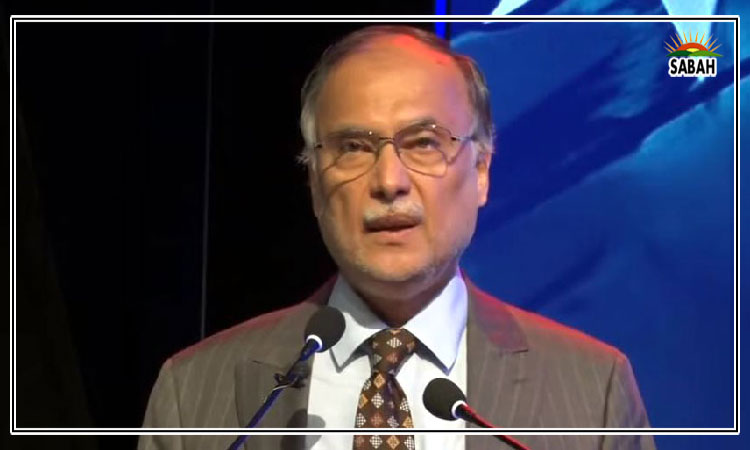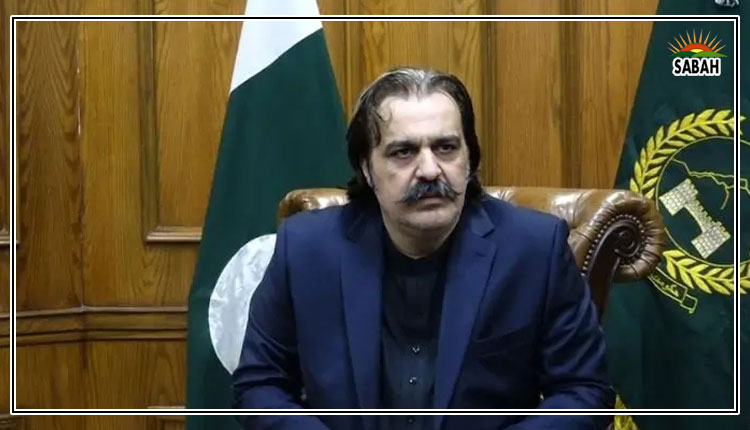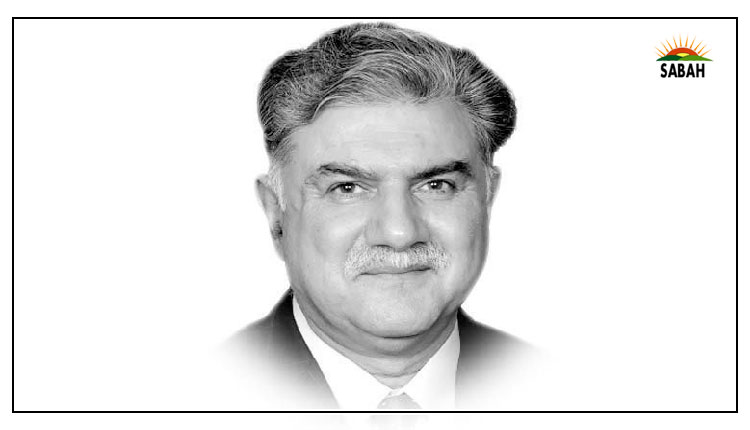PTM Jirga – analysis … Inam Ul Haque
Last week we discussed the factual aspects of PTM Jirga organised in Jamrud, Khyber District from 11-13 October with the government’s support. The salient demands and recommendation of the Jirga included a two-month ultimatum for militant groups and military forces to leave the militancy-hit areas, vowing otherwise to decide ‘to remove these elements’. Other demands include affordable electricity for KP, at Rs5/unit instead of the current tariff of over Rs60/unit; free electricity for tribal areas as in the past; severance of electricity connections in case of lead-shedding; PTM lawyers to initiate action against land grabbers occupying lands of martyrs and missing persons, possibly going to the ICJ, if necessary; opening of Pak-Afghan Border from Chaman to Dir for visa-free trade, else border check posts will be closed; IEA to allow women education; sending a delegation to resolve the ongoing dispute in Kurram District; KP be given its share of natural gas and water; military courts and internment camps be closed; all political prisoners be released; a judicial commission to probe extrajudicial deaths and disappearances; and IDPs be returned home without any extortion.
CM Gandapur promised an Apex Committee meeting to enable Jirga members to present these proposals, and subsequent passage of relevant resolution in the KP assembly. The Jirga also decided to construct a sort of ‘Jirga Secretariat’ at its site in Jamrud. The following are some policy considerations.
First, seeing the Jirga as a vehicle to resolve the complex and intractable issue of terrorism without active state patronage, only under the weight of Pashtun riwaj (customs), Pashto lar (way), and other Pashtun socio-cultural norms is too far-fetched, and betrays not knowing the Pashtun sociology. Jirga as a Conflict Resolution Mechanism (CRM) is well established in Pakhtunkhwa including Afghanistan, is ‘generally’ tribe-based, is effective between two to three parties and helps to resolve only local and smaller issues. There is no historic precedence where Qaumi Jirga has resolved transnational issues like terrorism. Considering this limitation, it was wise for the Jirga to hand over their 22 recommendations to the KP Government which, after sifting actionable issues at provincial level, would hand over the rest to the Federal Government.
A similar Jirga in 2022 in Kabul under the aegis of Haqqanis to resolve TTP issue with Pakistan failed. Ironically, it was in the presence of Jirgas the historic CRM that Pashtun lands succumbed to terrorism and violence in the first place. Jirga with the support of Chalweshti (sort of a quick reaction tribal force) and lashkar (tribal army) as enforcement mechanisms, was unable to arrest terrorism, hence the consequent involvement of LEAs. It would be interesting to watch Jirga dealing with the entrenched militancy by TTP, where negotiations and other non-kinetic means have so far had little effect, especially when the LEAs are out of the scene, as the PTM demands. Considering militants on a par with State would be a grave mistake that Jirga needs to be mindful of.
Third, given the positivity and euphemism about this Jirga, as expressed by all participants, especially the KP Govt led by Gandapur, KP opposition and Pashteen et al, a premature desire at political point scoring cannot be overlooked. For PTM especially, it is a lifeline to stay relevant and politically afloat. PTM’s persistent rhetoric of holding LEAs equally responsible for militancy is short-sighted political game of thrones, that in the long-run risks failure. The Jirga outcomes have yet to be ‘practicalised’ and implemented, and for that PTM and others cannot ignore the main stakeholders in the Country. Likewise, considering TTP to agree to PTM demands of demobilisation, disarmament and peaceful existence would be tricky, complex and perhaps an impossibility.
Fourth, the government’s knee-jerk reaction of banning PTM and then facilitating it to hold a mammoth national Jirga are contradictory, confused and ill-advised policy iterations. It is recommended that policy formulation should follow an institutional framework rather than whims and spur of the moment decisions, that seem like the hallmark these days.
Fifth, Pashtun ethnicity should be dealt with delicately and sensibly. Although the pitfalls of Qaumi Jirga as identified above are to enable better response options, public support for the process cannot and should not be overlooked. When it comes to Pashtun rights, and the recently fanned ‘sense of deprivation’ PTM and PTI are seemingly on one page, under PTI’s yearning to explore more anti-Islamabad pressure points. PTM’s youthful challenge needs careful handling rather than bluster, bans and hiding from it through denials. Most of their demands are ‘over-ask’. Traditionally fringe communities trying to find their political bearings, resort to this tactics, and ultimately settle for much less through continuous and patronising engagement by the State. PTM’s legitimate and possible demands should be accepted through administrative action and coordination. For the stakeholders, one Balochistan is enough to deal with. Instability in Pashtun lands would be a much bigger problem, with many eager to fish in the troubled waters.
Sixth, the PTI-led KP government needs to realise, it has taken a very big bite than it can chew without steadfast support from the Federation, especially the Armed Forces. Even for the provincial level recommendations of the Jirga to be implemented, Federal support would be indispensable. So, instead of conquering Islamabad through childish yalghars every now and then, Mr Gandapur needs to think and act like a mature politician to run the affairs of his cash-strapped and dengue-infested province. And the panacea for that is working with and not against the Federal Government. One remembers the smart strategy adopted by the ANP Government under CM Haider Hoti, who would bring their problems to the Apex Committee in GHQ under Gen Kayani and walk away with benefit for KP.
Inflexible politicians in this ‘hard country’ are doomed to ignominious failure. Agitational politics, poisonous rhetoric from either side and PTI yalghars and the consequent blockades are already bringing a silent change against PTI in Rawalpindi Islamabad, and serious circles elsewhere.
Courtesy













